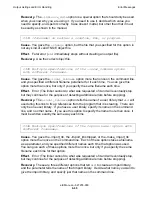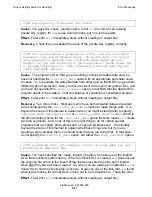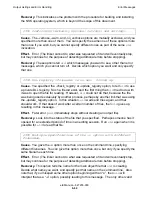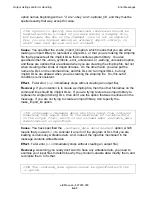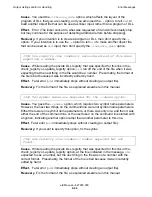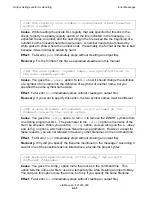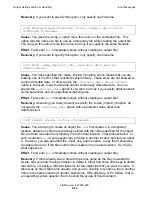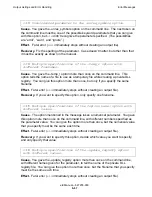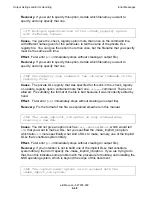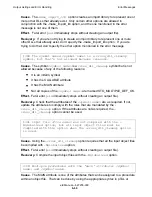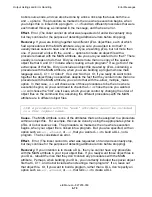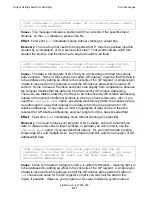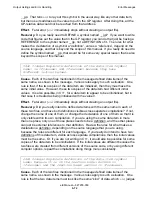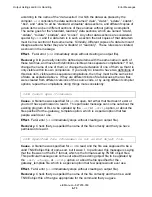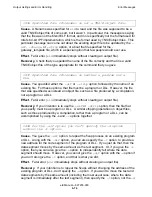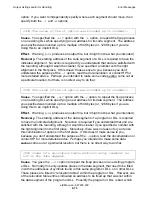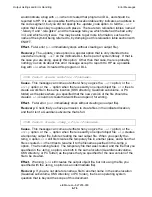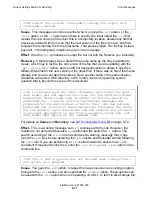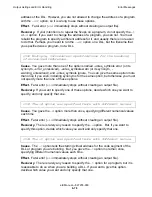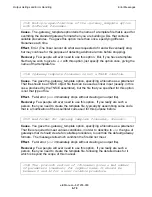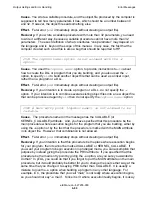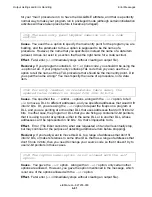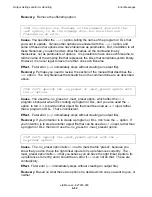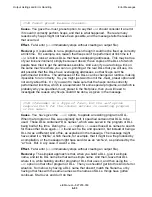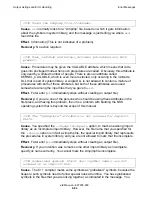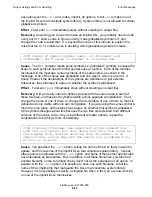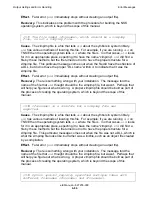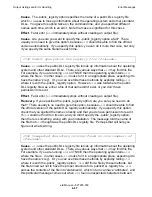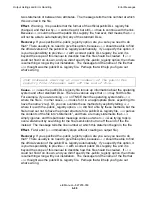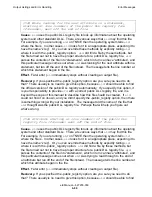
Output Listings and Error Handling
eld Manual—527255-009
6-74
Error Messages
Cause.
A filename was specified for
eld
to read, and the file was supposed to be a
valid TNS/E object file of some sort, but it wasn’t. In particular, this message is saying
that the file was not the 64-bit ELF format, and more specifically not the format used for
Intel’s 64-bit IPF implementation, which is the format used by TNS/E object files. This
particular message can come out about the existing object file to be updated by the
-
alf
,
-change
, or
-strip
option, or about the file specified for the -
gateway_template file, which is a special option that few people would ever use.
Effect.
Fatal error (
eld
immediately stops without creating an output file).
Recovery.
Check that you spelled the name of the file correctly and that it is a valid
TNS/E object file of the type appropriate for the command that you gave.
Cause.
You speciifed either the
-alf
or
-strip
option, followed by the name of an
existing file. For these options, that file must be a program or DLL. However, the file
that was specified was instead an object file, such as a file produced by a compilation,
not a program or a DLL.
Effect.
Fatal error (
eld
immediately stops without creating an output file).
Recovery.
If your intention is to use the
-alf
or
-strip
option, then the file that
you specify must be a program or DLL. A similar stripping operation on object files,
such as those produced by a compilation, rather than a program or a DLL, can be
accomplished by using the -s and
-r
options together.
Cause.
You gave the
-alf
option, to repeat the fixup process on an existing program
or DLL. Along with the
-alf
option, you can also specify the
-t
option, to provide a
new address for the code segment of the program or DLL. If you just do that, then the
data segment moves by the same amount as the text segment. Or, if you give the
-t
option, then you can also give the
-d
option, to independently tell where the data
segment should move. However, you cannot give the
-alf
option with the
-d
option if
you don’t also give the
-t
option, and that is what you did.
Effect.
Fatal error (
eld
immediately stops without creating an output file).
Recovery.
If your intention is to repeat the fixups without changing the address of the
existing program or DLL, don’t specify the
-d
option. If you want to move the text and
data segments by the same amount (including the most usual case, where the data
segment is immediately after the text segment), then specify the
-t
option, not the
-d
1496 Specified file <filename> is not a TNS/E object file.
1497 Specified file <filename> is neither a program nor a
DLL.
1498 For the -alf option you can't specify the -d option
without the -t option.
Summary of Contents for eld
Page 4: ......
Page 8: ...Contents eld Manual 527255 009 iv ...
Page 12: ...What s New in This Manual eld Manual 527255 009 viii Changes to the 527255 005 Manual ...
Page 34: ...Introduction to eld eld Manual 527255 009 1 14 Example of Use ...
Page 54: ...eld Input and Output eld Manual 527255 009 2 20 Using Archives ...
Page 98: ...Other eld Processing eld Manual 527255 009 4 20 Merging Source RTDUs ...
Page 242: ...Output Listings and Error Handling eld Manual 527255 009 6 132 Glossary of Errors ...

